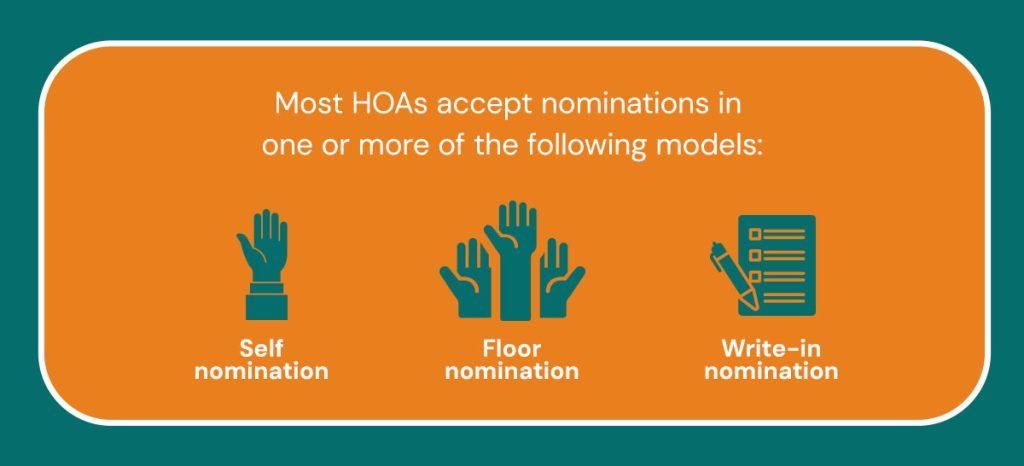4 Tips for Running for an HOA Board Position
If you want a healthy, thriving neighborhood, you need a strong homeowners association (HOA). HOAs set rules that ensure homes retain a high property value, including determining whether owners can rent out their homes and what types of architecture are allowed in the community. They also maintain common areas, such as community parks and shared lawns, to keep a cohesive aesthetic within the neighborhood.
Running for the HOA board can be an excellent way to make positive changes in your community. This quick guide to running for an HOA board position will help you get started on your election campaign.
1. Know the Role’s Responsibilities
It’s important to know exactly what you’re running for before you enter the race. The core HOA board member positions include:
- President: An HOA president oversees the association’s general functioning and decision-making processes. This individual typically has the final say in difficult decisions and is an expert on all association rules and procedures.
- Vice president: The vice president acts as the president’s second in command, leading committees and filling in for the president whenever necessary.
- Board secretary: The secretary creates and maintains HOA records and documents, including meeting minutes and other important notes.
- Treasurer: The treasurer maintains the association’s financial well-being by managing the budget and collecting fees from owners.
- HOA manager: This individual oversees the association’s everyday operations to keep things running smoothly.
- General members: Larger HOAs often include an assembly of general members who serve on various committees, such as the Landscape Committee or the Welcome Committee.
Actively attending meetings and expressing your interest in running can help you raise your chances of making it onto the ballot. It can also help to take an HOA class or seminar if you can find one in your area. These classes will teach you more about how HOAs work so you can ease into your position once elected.
2. Introduce Yourself to the Community
Homeowners want to ensure the person they choose for an open board position will represent them well, which is why it’s so important to get out and about in your development.
Even if you’ve lived in your community for years, making yourself more visible to your neighbors can help you connect with potential supporters and learn more about the community’s biggest issues. Those issues might include:
- Delinquent assessments
- Rules about pet ownership
- Inefficiencies in normal operations
- Improperly maintained common areas
- Lack of transparency in decision-making
- Violations of codes, covenants, and restrictions (CC&Rs)
Knowing these issues can help you prioritize and build out your platform, which will help convince your neighbors that you deserve the position. The more time you spend interacting with your neighbors, the more confident you can be that you are choosing issues that represent all homeowners within the community rather than ones that only matter to a few.
3. Get Nominated
You’ll want to make sure your nomination is in at the beginning of the election season to give your campaign the best chance of success. Most HOAs accept nominations in one or more of the following models:

- Self-nomination: You can nominate yourself as a candidate by filling out an application form or submitting a letter of interest for the HOA board position you want.
- Floor nomination: Before opening the floor, the association must establish a quorum, which means the minimum number of attendants to make a valid decision must be present. Owners in good standing with the association can then nominate members they want to run. However, this method is considered outdated as it requires members to be physically present, limiting accessibility for those unable to attend the meeting. It also often leaves little time for nominees to prepare a robust campaign, potentially disadvantaging candidates and reducing voter engagement.
- Write-in nomination: Members can submit nominations on election day by writing the nominee’s name on their ballot. If the nominee gets enough write-in votes, the HOA will allow them to accept or decline the nomination.
Once you’re in the race, you’ll want to create a short bio or introductory video for your campaign. This feature can grab voters’ attention and show them why you’re the clear choice for the position before they make their final decision.
4. Get out the Vote
Small organizations like HOAs need high community participation to thrive, which is why many associations turn to HOA management companies to help simplify election administration. And when management companies need tools for streamlined voting, they turn to Survey & Ballot Systems.
Our user-friendly online voting platform features an intuitive interface that makes casting your ballot quick and easy. Because the software is fully cloud-based, attendees can vote directly from their browser — no app download is needed. The solution is also optimized for use on various devices, including tablets, phones, and computers, so users can vote from the device they’re most comfortable with.
We also provide election reminders to ensure everyone remembers when election day is. These reminders come in various formats to maximize your reach to even the least tech-savvy voters:
- Email reminders
- iCalendar events
- Automated SMS text messages
You’re Elected — Now What?
Whether you get elected as the vice president or a general member, you need to be ready to roll your sleeves up and get to work. You’ll want to start by reviewing the HOA’s governing documents and bylaws before you officially take your position on the board. In addition to outlining rules and regulations for elections, these documents provide key information you’ll need to know about how the HOA works from the inside.
Your state will also have specific laws regarding what your HOA can do and how it must run.
Some other best practices for new HOA board members include:
- Collaborate with other board members: Clear, consistent communication and a willingness to work together are critical skills for running an HOA. Understanding what you will be responsible for in your new role will help you ease into your place on the team.
- Learn to problem solve: Problem-solving skills are critical for HOA board members because they help you prioritize issues and brainstorm practical solutions. You should also feel comfortable researching complex legal topics to back your decision and convince your fellow board members.
- Take advantage of learning opportunities: Your HOA may have a mentorship program designed specifically to train new board members on processes and procedures. Participating in this program or other similar courses can help you become an expert in your board before you officially take your position.
Streamline Future HOA Elections With Survey & Ballot Systems

Once you’ve won your HOA board election, you might consider simplifying future elections. Survey & Ballot Systems has digital solutions to help your organization enhance elections for every community member.
Our Real-Time Election Voting Software platform tracks election data as votes roll in, so your association can determine outcomes as soon as the election ends. Your HOA management company can run the election 100% online or create a hybrid model that combines mail-in ballots and digital capabilities in the same centralized interface.
Ready to get started making positive change? Visit the pricing page to start your HOA’s plan today!

